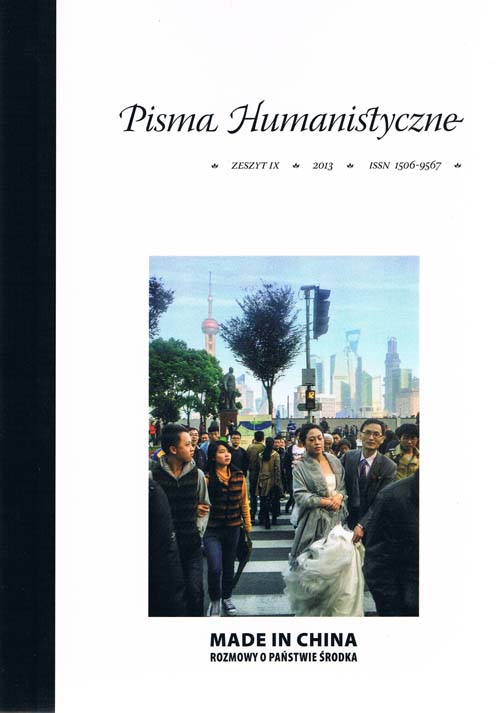China’s Burma policy. A Strategic Partner or a New Colony?
China’s Burma policy. A Strategic Partner or a New Colony?
Author(s): Michał LubinaSubject(s): Social Sciences
Published by: Wydawnictwo Uniwersytetu Śląskiego
Keywords: Burma; China; interests; strategic; policy
Summary/Abstract: Sino-Burmese relations, seen from the perspective of the West mainly as a political umbrella of Beijing for criticized in the world Burmese junta, while the reality is much more complex. It contains within it a number of issues, such as historical heritage (which clearly left in Burma fear of powerful northern neighbor), economic issues, as legal (economic exchanges with the PRC — main trading partner of Burma) and illegal (opium trade) and political, in the context of the ongoing recently in Burma “thaw”, whose main goal is to just break out of Chinese tutelage. Important is the Chinese perception of Burma: a country on the one hand solve “Malacca dilemma” and an excellent market for domestic goods, on the other hand as a country uncertain, torn by instability and threatening of a broader vision of exit the Indian Ocean. The Chinese, by withdrawal of the West from Burma, gained there undivided position and maintained it skillfully. However, this dominance aroused in the Burmese generals fear from becoming a vassal of Beijing and pushed them to the strategic decision to liberalize. Junta calculated that it is better to start controlled reforms and thereby get support of the West, the only power that could counterbalance China, than to give to dominate Beijing. In making this game, generals risked. Th e success of reforms in Burma will be crucial for the further position of Burma in relations with China. If the opening to the world is successful, Burma will be able to balance its Chinese policy vector. If not, Burma will inevitably sliding toward the Chinese colony.
Journal: Pisma Humanistyczne
- Issue Year: 2013
- Issue No: IX
- Page Range: 73-87
- Page Count: 15
- Language: English

